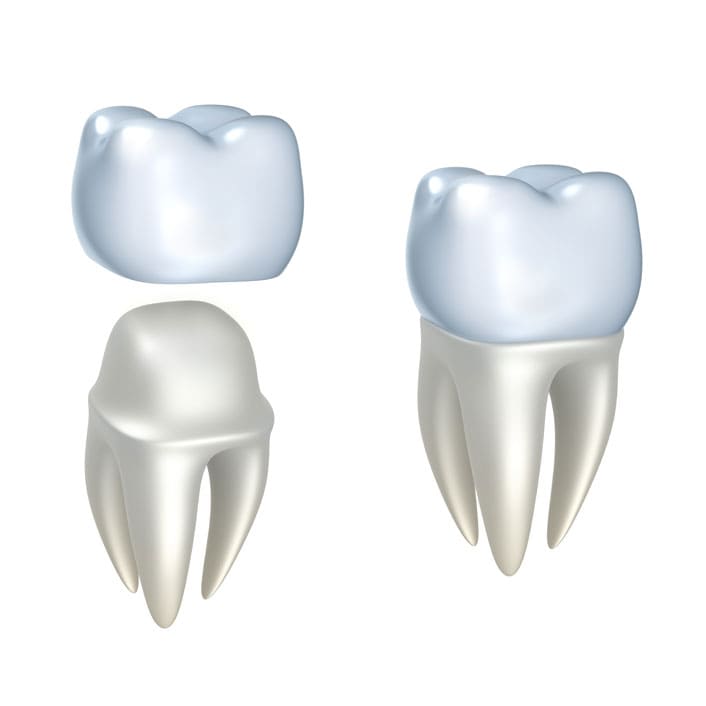
Crowns
Crowns are used to restore and enhance teeth that are are damaged due to fractures or caries, or to replace missing teeth. A crown, also called a cap, is used to entirely cover a damaged tooth. A crown not only strengthens the tooth, but it can also dramatically improve the tooth's appearance, shape and alignment.
Crowns may be used to…
- Replace a large filling when there is little tooth structure remaining
- Protect a weak tooth from fracturing
- Restore a fractured tooth
- Attach a bridge
- Cover a dental implant
- Cover a discolored or poorly-shaped tooth
- Cover a tooth that has had root canal treatment

